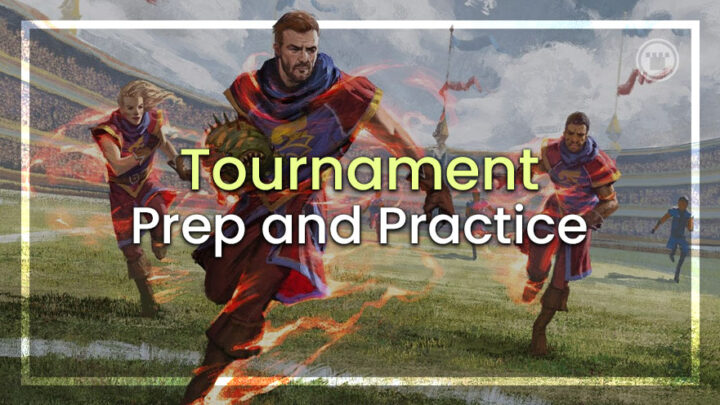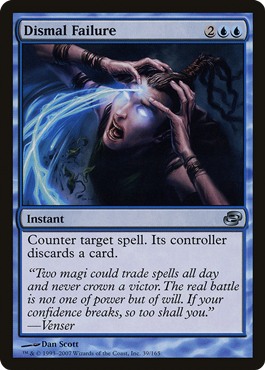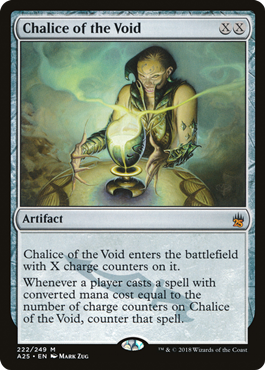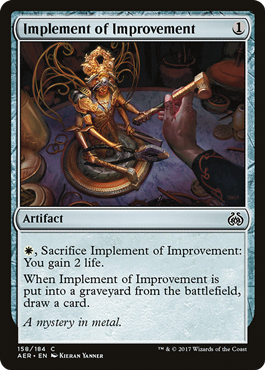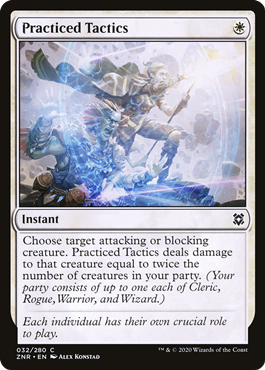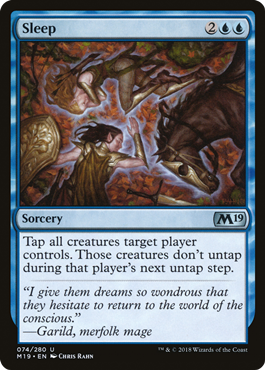As the Regional Championship Qualifier season gets into full swing, many people will be playing in more competitive MTG tournaments than they have in a long time. As players return to paper Magic, it is important that they come back with the right mentality. Like anything else in life that involves competition, if you want to win, you’ll need to think like a winner.
While I could write at great lengths about how to mentally approach competitive Magic, I want to focus on tournament prep today. After all, you need to have a solid foundation to succeed, and that starting point is easily built by being well prepared.
What makes up a winner’s mentality? The key points are: confidence, learning from losing, accountability, constant improvement, practice, developing a plan, physical preparation and a willingness to work with others.
Confidence
Confidence is a much larger part of succeeding in Magic than people give it credit for. The body language part of confidence shines while playing games, but confidence is still important during practice. Learning how to play with confidence and present strong body language can send signals to your opponent that you are happy with how the game is going, even when things aren’t going well.
Someone with less confidence may draw their card and slouch, or sigh, which is a dead giveaway that the card they drew isn’t good. Savvy players will take advantage of an opponent who gives away this information freely by potentially playing more aggressively when the opponent is showing weakness.
Give thought to your plays, but also be confident that your plan is the best available. If you start second guessing yourself, you may start deviating from your plan, which is a sure recipe for failure.
Learning from failure
“Winners are not afraid of losing. But losers are. Failure is part of the process of success. People who avoid failure also avoid success.” — Robert T. Kiyosaki
Kiyosaki wasn’t speaking about Magic in this quote, but the message certainly applies. Magic is a hard game, and you can’t control everything on the table. The better player doesn’t always win.
In fact, the best players in the world still lose upward of 30% of their games. Expand that to your average player and you’re looking at more like losing 50% of games. No one starts as a world caliber player, which means you’re going to lose a lot before you win a lot.
For some people, this may be a deterrent. It may feel like you’ve hit a wall — but don’t let losing demotivate you. Instead, find ways to learn from it.
You can learn from winning, but the amount you can learn from losing is much greater. Finding out what doesn’t work explores multiple angles at a time, because not only do you eliminate something that doesn’t work but you get closer to figuring out what does.
How does this translate to Magic? Have you ever thought about how to sideboard in a specific matchup and you weren’t sure if it’s correct to board in a card? Perhaps you’re considering changing a Chalice of the Void in your sideboard to a Flusterstorm to have another card in a broader set of matchups. There are many more situations like this that can be addressed during tournament prep by simply testing things without the fear of failure.
There are two outcomes in this situation, the card or choice performs badly and you found out something that didn’t work, or it performs better than expected and you’ve found some new tech. In my eyes, either outcome is a win.
Personally, I don’t put a lot of stock in my results from any given tournament. I’ve been as happy with a 1-4 as I’ve been with a 5-0. Why is this? Because, to me, what matters is how well I played.
Did I play to the best of my ability? Did I challenge myself in tough spots? Did I learn something about my deck, an opponent’s deck or a matchup? If the answer is yes, that match was a success regardless of the outcome. I’m a big believer that focusing on results doesn’t matter but playing to improve will bring the results I want.
Always be improving
Always striving for improvement means you never stagnate. It’s easy, once you get in the groove of an RCQ season where you’re playing the same deck every weekend, to not play and practice during the week. If you take time off during the week not looking at results from the week before, not testing new tech or practicing existing matchups, you’re going to fall behind the people that do put in that work.
It is no secret that Magic has a lot of intelligent players, which means being smart often puts you on level ground instead of giving you an advantage over the field. This means that the people who put in the most work will often have the edge.
I’m a firm believer in the “practice how you play,” approach. That means to treat practice exactly how you’d treat a tournament.
For me, specifically, I sit down with the intention of practicing and learning as much as I can. I’ll turn off the TV, close YouTube and remove all external distractions. If I’m playing by myself, I’m as focused as possible on the match at hand. And if I’m testing with friends, we will talk about different lines or plays — but everything is about the match.
In tournament Magic, it is just you and your opponent, so I want to simulate that in practice as much as I can.
Accountability
Far too often I see people blaming a variety of factors — variance, opponents playing in a way they didn’t anticipate, even things as ridiculous as blaming the MTGO shuffler — for their losses. In reality those players likely made a number of mistakes regarding anything from mulligan decisions, to sequencing to role assessment.
It is incredibly difficult to play a perfect game of Magic, and no one expects that. However, instead of admitting they made mistakes throughout a game, match or tournament, they blame any external factor they can.
Owning the mistakes you make is both important and a good thing to do. There is a stigma around mistakes that should be dispelled. We’re humans — mistakes are inevitable. The sooner players start taking accountability for those mistakes, the sooner they can learn from them.
Another problem I see far too often in Magic is players will internalize their mistakes in unhealthy ways. You aren’t stupid or bad because you made a mistake, and those thought patterns keep people from learning. It is important to internalize mistakes to acknowledge that they happened while looking at them as an opportunity to improve. That is a much healthier approach, as you learn, and it won’t damage your confidence in the meantime.
Be practiced to beat nerves
Something I hear a lot from newer players, or players just beginning their competitive Magic journey, is that they’re nervous about being at a tournament or playing important matches. The best advice I can give is to be well practiced. If you’re practiced and prepared, any match of Magic is just like any other you’ve played before.
It doesn’t matter if your opponent is someone you’ve never heard of or a hall of famer. It doesn’t matter if it is a Friday Night Magic match or a Grand Prix top 8. It’s all just a match of Magic against another person who is also just trying to play their best.
Removing external stressors is a big help for me because I can focus on the match itself. I do this by telling myself that it’s just another match of Magic, just like the thousands of matches I’ve played before.
Once you’re able to remove nerves from the situation, you can now think clearly in order to play your best. Everyone is different and everyone relaxes differently. Some people listen to music between rounds, others talk to friends and some people even play different games just to keep their mind working. It is all about finding what works for you.
Have a plan
Having a plan is important both in and out of a match. In the game, my plan often revolves around the questions “What do I need to do to win?” or “How does my opponent win from here and how can I stop that?” However, having a prep plan is important for staying organized.
If I’m trying to figure out what deck I want to play, I’ll find a list that interests me and I’ll set aside time to play some matches to get a feel for things. I’ll also keep a spreadsheet with matchups, records and notes about things that feel important, so that way when I’m thinking about all the decks I’ve played in preparation, I have the data to look back on and I’m not just doing things by feel.
Set a deadline for yourself to pick a deck to play in the event you have coming up. I usually like to do this at least two weeks out, if possible, so I can get to play enough with the deck beforehand. Not everything can be all work all the time — that will lead to burning out quickly — so make sure to set some time aside for fun of some kind.
Physically prepare
So far, we’ve mostly talked about mental preparation — but being physically prepared is also important. Mental wellness has a close connection to physical wellness, so not being physically prepared is going to make you feel poorly by decreasing your mental performance as well.
What does being physically prepared mean? In short, make sure you sleep well before a tournament. Nothing is worse than hitting round four and crashing. Getting enough sleep will also boost your mental acuity, making it easier to process information.
Magic takes a lot more energy than it would seem for a game that requires sitting down all day. When you’re thinking at a high level for such a long time, your brain needs a constant source of fuel to keep up.
Keeping snacks on hand during a tournament is a good way to keep your energy level up and help your brain work at the capacity you need it to. Staying hydrated is also important. Once dehydration starts to kick in, on come the headaches and a sluggish feeling, making focusing much harder.
The last and most underrated part of being physically prepared is to make sure you have your deck in order. Have all the cards, have everything sleeved, have your deck list written or submitted all the night before. Waking up and stressing about finding cards the morning of ensures you’re going to start the morning off stressed instead of going into the event relaxed and level headed.
Work with others
“Learn from the mistakes of others. You can’t live long enough to make them all yourself.” — Eleanor Roosevelt
For a long time, I’ve been a believer that Magic is much more of a team sport than people think it is. Sure, we play individual matches, but I think actually playing the tournament is the least important part of the tournament.
Properly preparing for an event makes playing the event just a repetition of things you’ve learned and practiced so far. Learning the things you need to learn and practicing the things you need to practice is much harder to do if you’re trying to do it all by yourself.
I’ll always advocate for finding players with goals similar to yours and trying to work with them. You don’t need a huge professional testing team like we used to see for Pro Tours, but having a couple of friends to work with lessens the burden immensely.
Consuming content is also a good way to improve while you can’t be physically playing. Streams, videos, podcasts and articles are all examples of content that can help you improve — and thankfully there is more content out there now than there ever has been. Remember, there is no shame in using external resources to get better at Magic. After all, you don’t get any bonus points for figuring it out alone.
End step
Putting all of this together hopefully shows how important having a winning mentality is, even well before the tournament begins. This isn’t something that is likely to come overnight to people, either — especially those with a lot to change or work on. However, it is a process that builds over time in order to give what is, in my opinion, a healthier and more efficient outlook on competitive Magic.
As always, you can find me on Twitter at @Rappaciousone for comments, questions or feedback. I’ll see everyone back here next Friday. Until then, be well and best of luck at your next event!

Michael Rapp is a Modern specialist who favors Thoughtseize decks. Magic sates his desire for competition and constant improvement.

